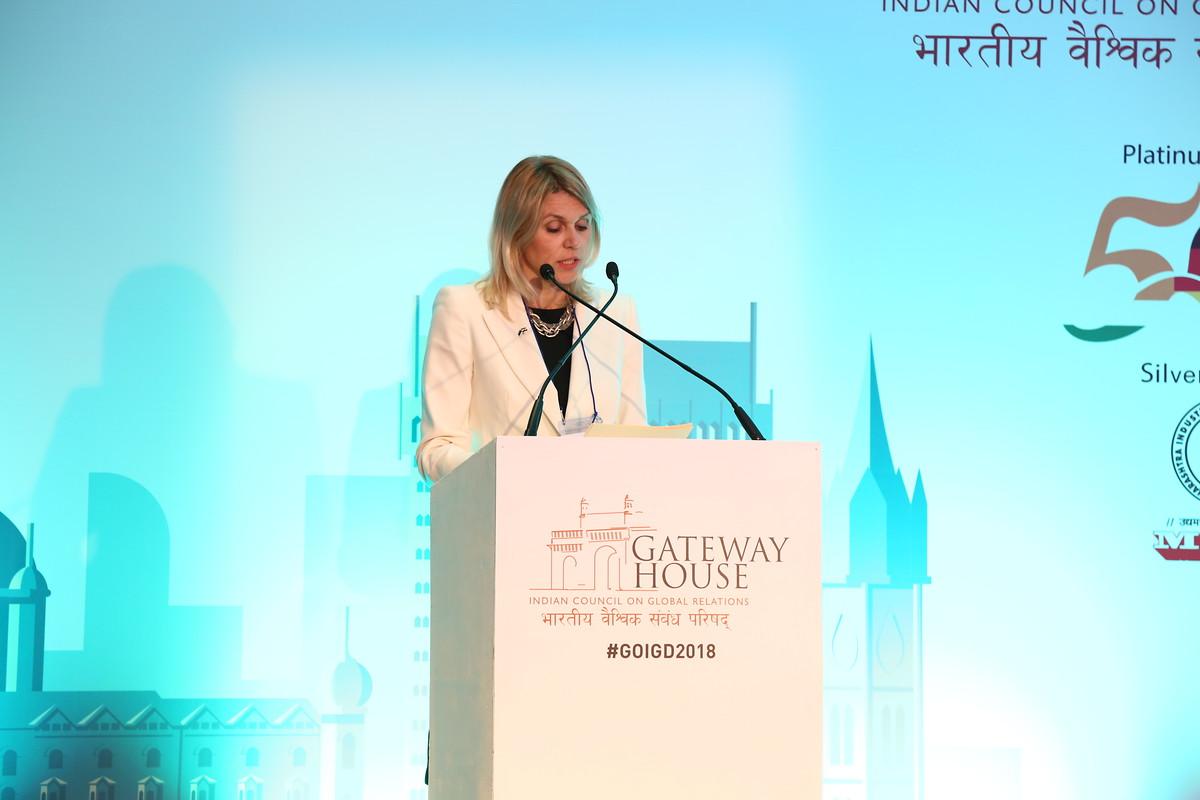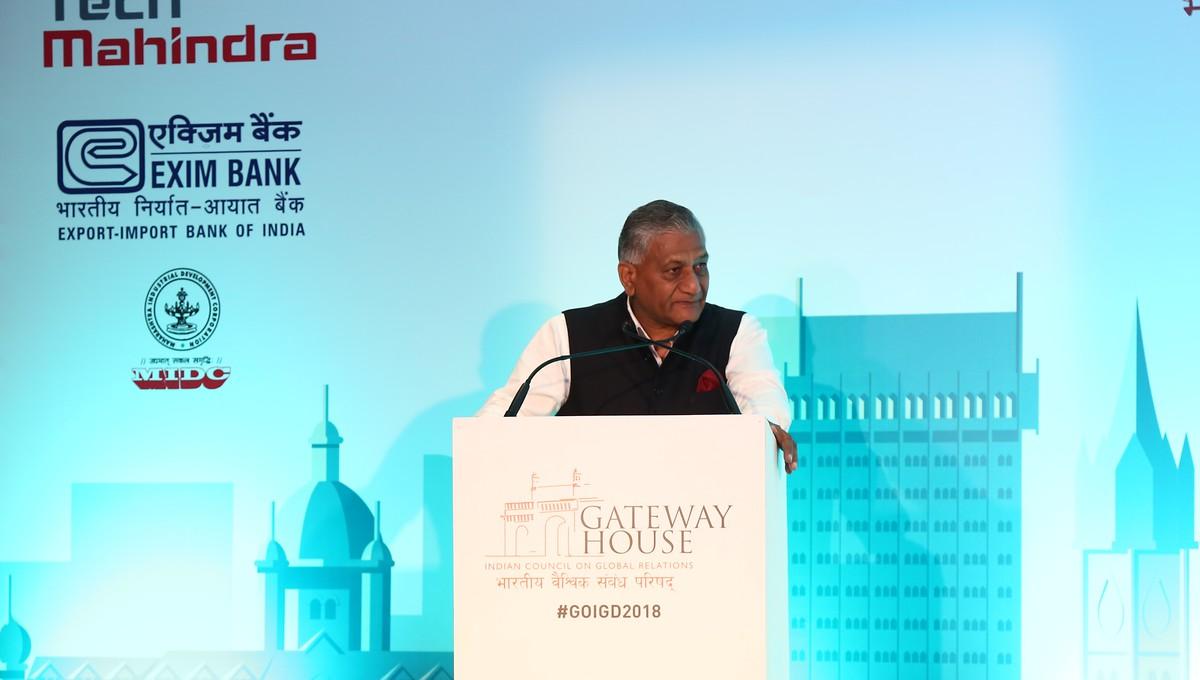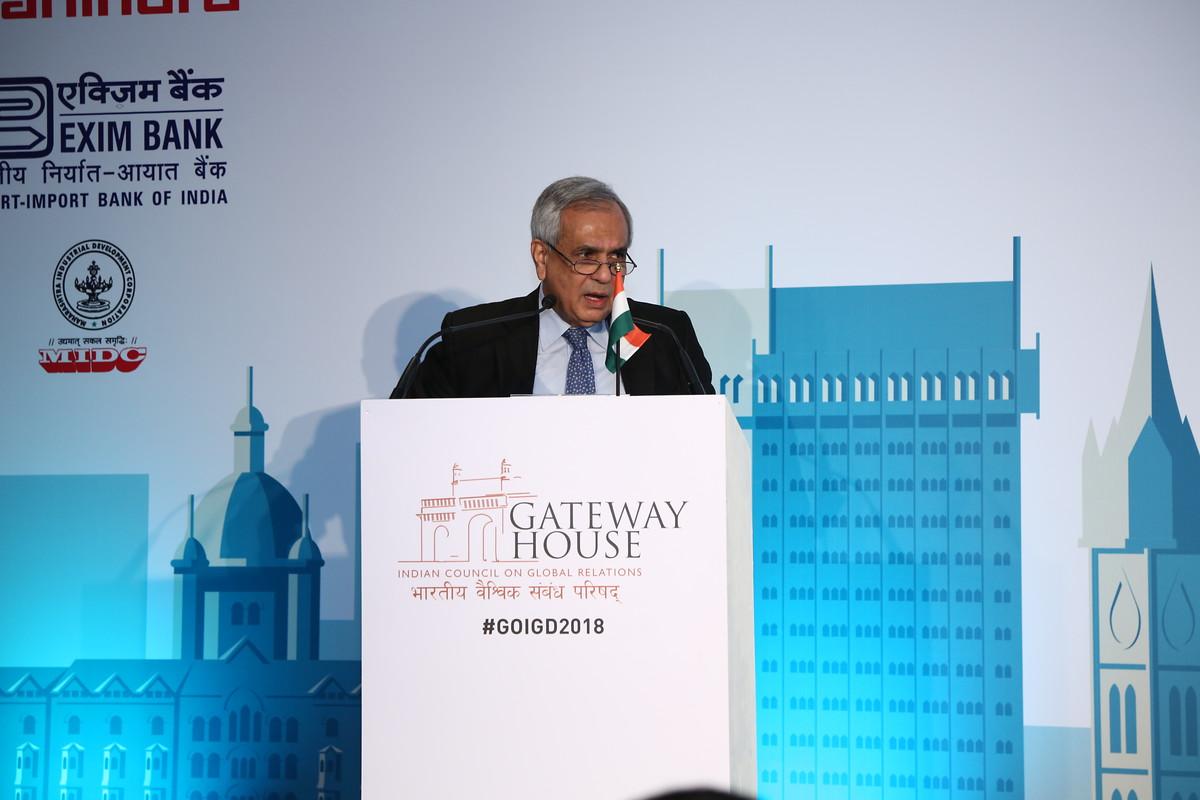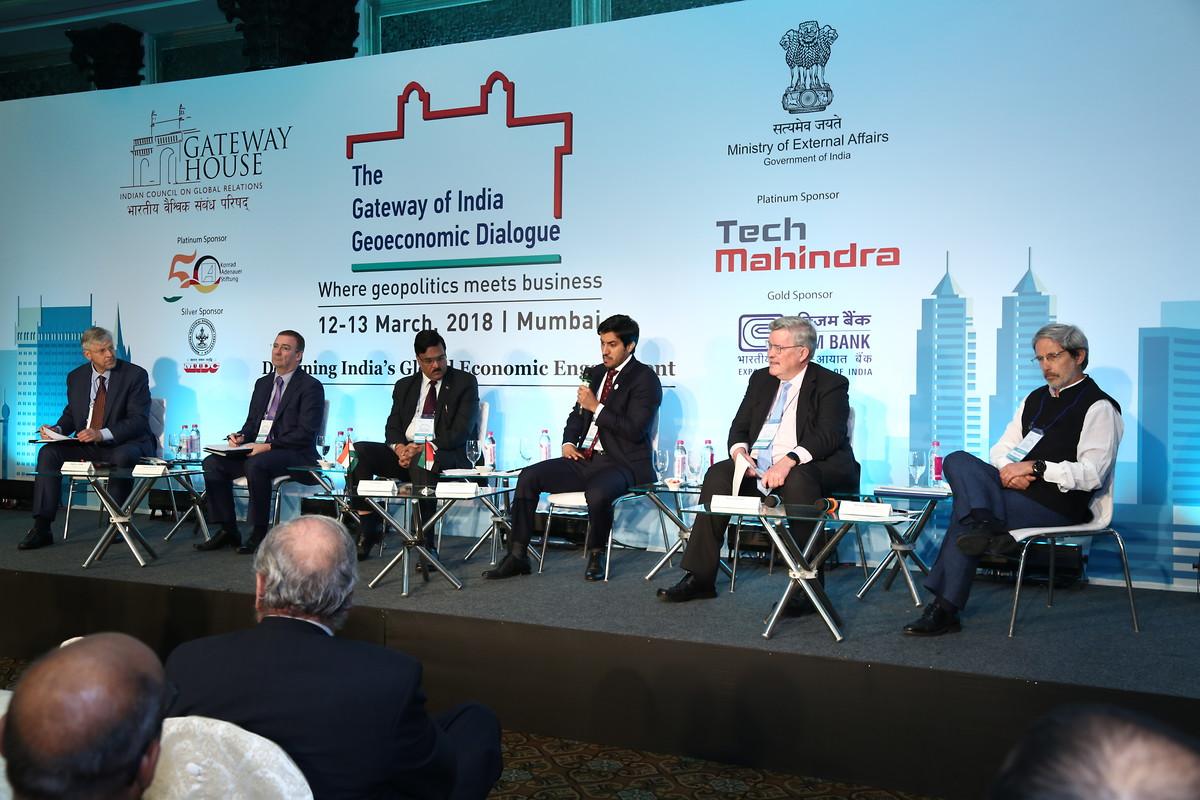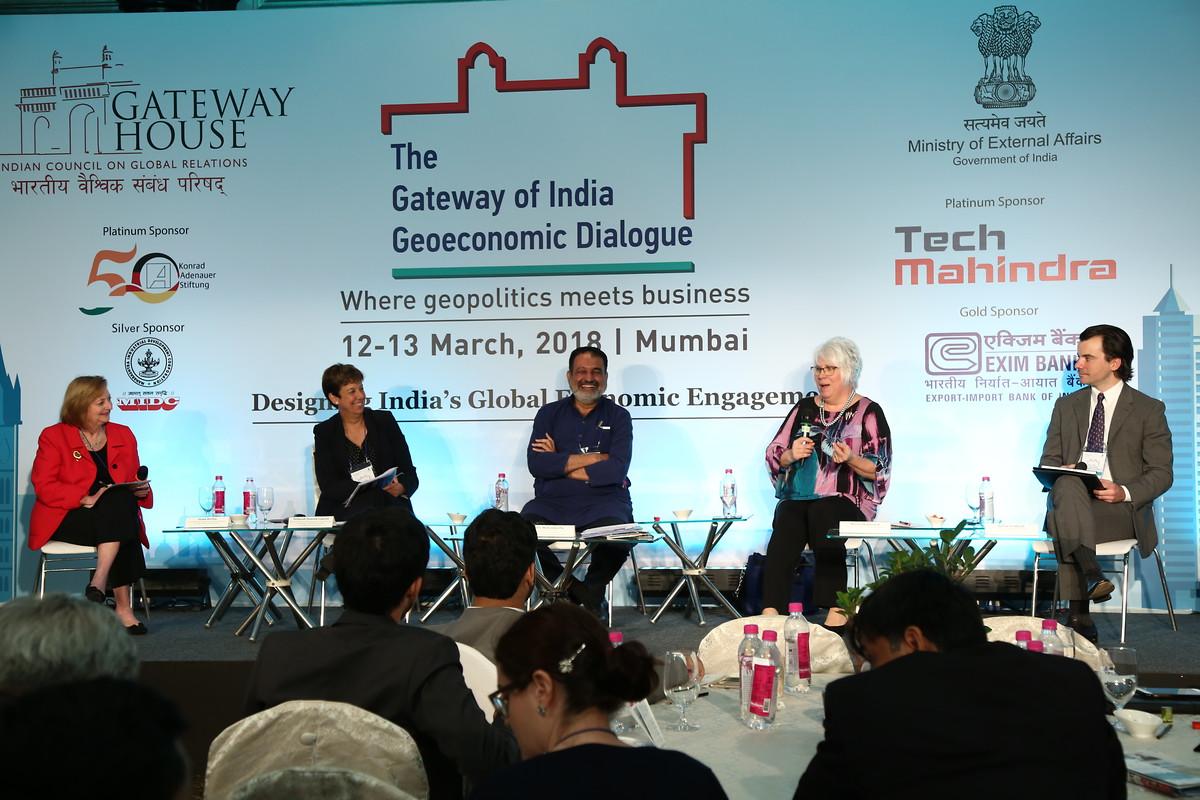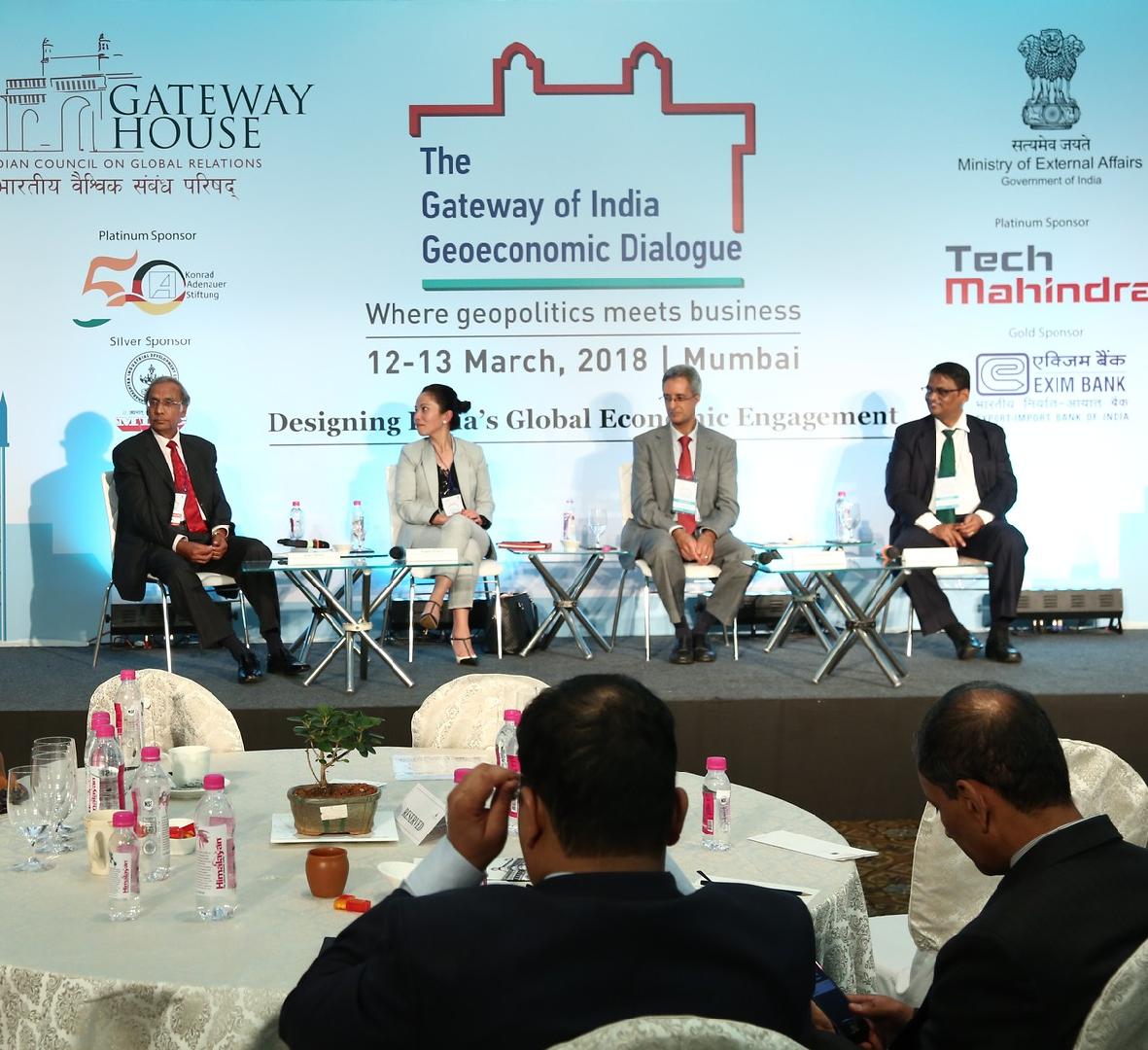Event reports
At the beginning of the conference, Urve Palo, Minister of Entrepreneurship and Information Technology in Estonia, in the special address gave her thoughts of how to shape a global digital economy. She spoke about Estonia's digital revolution with its only 1.3 million inhabitants, in which every area of life has become digitized. She emphasized that digital solutions can boost economic growth and facilitate people's lives, as it is already in Estonia. She called digitalization the engine of Estonia's development. Both in the public and in the private sector, digitization is well advanced in Estonia. The government has been at the forefront of this development and has made almost all public services available digitally. Due to this high penetration of the entire life, the topic Cyber Security is of significant importance for Estonia.
Suresh Prabhu, Minister of Commerce and Industry of India, highlighted in his welcome address that India is the fastest growing major economy in the world and will exceed the 5 trillion Dollars mark of the gross domestic product in the next years. He said the manufacturing sector would contribute to it with 1 trillion Dollars, the services sector 3 trillion Dollars and the remainder would come from the agricultural sector.
General Dr. V.K. Singh, Indian Minister of State for External Affairs, emphasized in his speech that growth must be translated into local development. He also talked about global protectionist tendencies and that India should pursue a policy that helps the economy to counter the effects of this development. Regarding India as an investment destination, he said that it is becoming increasingly popular for foreign investors. He explained that the Goods and Services Tax (GST), which was introduced in 2017, like any kind of such an extensive reform, it does not work flawlessly in the beginning and it is currently heading in the right direction. The minister also said that the port of Chabahar in Iran was put into operation with regard to India's international strategy, thereby facilitating and ensuring the connection to Afghanistan. This would allow both sides to work better together, especially in the area of mutual trade.
In the first panel discussion, Shyam Saran, former Foreign Secretary of India, and Richard Haas, President of the Council on Foreign Relations in the United States, talked about the relationship between the United States and India in a changing Asian landscape. Haas said that there is currently a particularly challenging moment in international relations. This is because power capacities are spread over more actors than ever before. The institutions created after World War II are no longer adequate for the current situation. He emphasized that the US needs a broader agenda in its relations with India, in which all global issues should be discussed to develop a common approach.
The second panel discussion was focused on financialisation and the question of how to shape the global financial market architecture, moderated by K. N. Vaidyanathan, Senior Fellow at Gateway House. Zeti Akhtar Aziz, former Governor of the Malaysian Central Bank, David Rasquinha, Managing Director of the Export-Import Bank of India, Eric Ben-Artzi, Partner of the Israeli consulting firm J & B Consulting, Claude Lopez, Director of the Milken Institute in the United States, and Kiran Shetty, CEO of SWIFT India, debated on how future crises in the financial market can be prevented and new innovations in the field of finance can be redirected to the real economy.
In his keynote address, Rajiv Kumar, Vice Chairman of NITI Aayog, said that India is currently on the threshold of inclusive and sustainable growth. It is also time to move beyond private solutions to public challenges, as the provision of government services would become more efficient, more transparent and will be constantly improved in the future.
The third discussion round was chaired by Andrew Crosby, Managing Director of the International Center for Trade and Sustainable Development (ITCSD), on the future of trade in services. JS Deepak, India's Permanent Representative to the World Trade Organization (WTO), Juma Al Kait, Assistant Under-Secretary for Foreign Trade at the Ministry of Economy of Abu Dhabi, Hector Torres, Senior Fellow at the Center for International Governance Innovation (CIGI), Pascal Kerneis, Managing Director at the European Services Forum in Belgium, and Patrick Low, Fellow at the Asia Global Institute (AGI) in Hong Kong, deliberated on the question which national and global regulatory policies are needed to make trade in services flourish.
The fourth panel discussion dealt with China and its geo-economic rise. Indira P. Ravindran, Adjunct Fellow at Gateway House, moderated the debate of Toshinori Doi, President of the Policy Research Institute in Japan, Prakash Menon, President of Global Retail Business of NIIT Ltd. from Shanghai, and Claude Smadja, President of Smadja & Smadja Strategic Advisory from Switzerland. They discussed how to deal with China's economic rise and its geo-economic toolkit, which includes state-owned companies, multilateral institutions and think tanks.
Akshay Mathur, Fellow at Gateway House, moderated the discussion on the G20. Pedro Villagra Delgado, Argentina's G20 Sherpa and former Deputy Foreign Minister, Prof. Dr. Heribert Dieter, Senior Fellow of the German Institute for International and Security Affairs (SWP) in Berlin, Claude Smadja, Guven Sak, Managing Director of the Economic Policy Research Foundation of Turkey (TEPAV), Danny Alexander, Vice President of the Asian Infrastructure Investment Bank (AIIB), and Amar Bhattacharya, Senior Fellows at the Brookings Institution, discussed the question of how the G20 should reconfigure its agenda for the future and whether it fulfills its original task of preventing the world from economic crises.
The sixth roundtable was moderated by Susan Ritchie, Vice President of Technology, Media and Telecommunications of the US-India Strategic Partnership Forum (USISPF) on Technology and the accompanying legal challenges. In the debate between Marina Kaljurand, Chair of the Global Commission on Stability of Cyberspace in Brussels, TV Mohandas Pai, Chairman of Manipal Global Education in Bangalore, Deborah Housen-Couriel, Fellow at the Interdisciplinary Cyber Research Center at the Tel Aviv University, and Julian Leuthold, Founder and CEO of GetGlobal in Los Angeles, discussed what legal requirements for new technologies, such as artificial intelligence, drones and virtual reality, are necessary and how they can be enforced.
The final debate of the conference was about Blue Economy under the moderation of Rajiv Bhatia, Distinguished Fellow at Gateway House. Given that the principle of the open sea partly conflicts with the strategic and security priorities of some countries, the focus was on how companies and policymakers respond to this challenge of theBlue Economy. Cyrus Rustomjee, Senior Fellow at the Center for International Governance Innovation in Canada, EN Venkat, Partner at the Aavishkaar Frontier Fund in Mumbai, and Reggie Ramos, former Under Secretary at the Department of Transportation in the Philippines, elicited their thoughts about the question of what makes Blue Economy interesting for developing countries.



